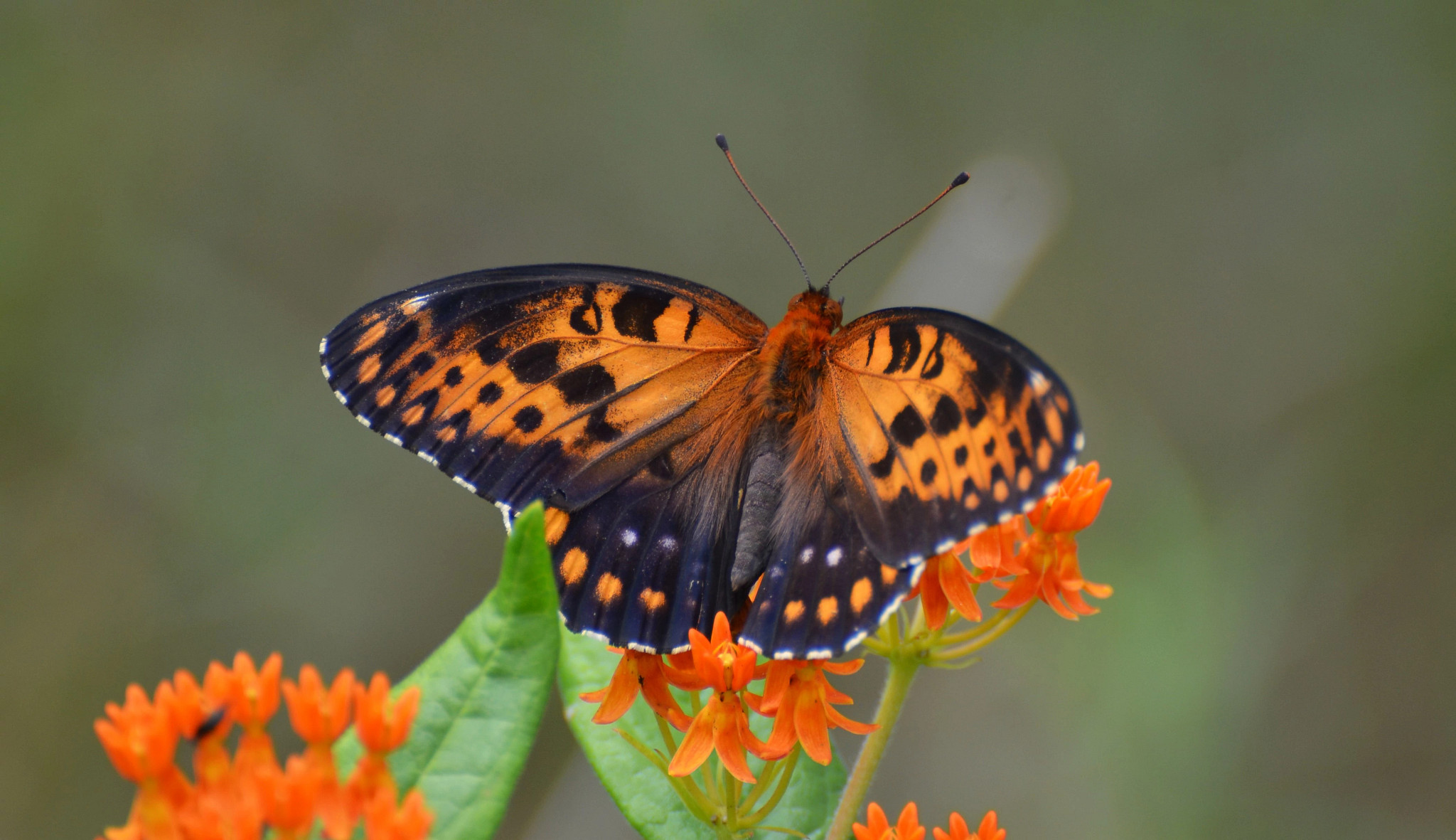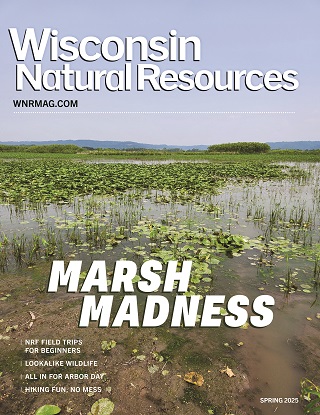Contact: Owen Boyle, DNR Species Management Section Chief
Owen.Boyle@wisconsin.gov or 608-576-2446
David Clutter, Executive Director of the Natural Resources Foundation of Wisconsin
David.Clutter@WisConservation.org or 608-409-3120
DNR And Partners Team Up To Improve 2,000 Acres Of Pollinator Habitat In Southwestern Wisconsin
 Endangered or declining pollinators including the regal fritillary butterfly, shown here, rusty patched bumble bee and monarch butterfly will benefit from a new habitat partnership.
Photo credit: Wisconsin DNR
Endangered or declining pollinators including the regal fritillary butterfly, shown here, rusty patched bumble bee and monarch butterfly will benefit from a new habitat partnership.
Photo credit: Wisconsin DNR
MADISON, Wis. – The Wisconsin Department of Natural Resources (DNR), the Natural Resources Foundation of Wisconsin and the Driftless Area Land Conservancy are teaming up to improve nearly 2,000 acres of pollinator habitat on public and private lands in southwestern Wisconsin. Federally endangered rusty patched bumble bees, monarch butterflies, regal fritillary butterflies and other at-risk pollinators will benefit from the work.
The Natural Resources Foundation of Wisconsin secured a $100,000 grant from the National Fish and Wildlife Foundation’s Monarch Butterfly and Pollinators Conservation Fund which will enable DNR staff to restore 267 acres and improve 1,570 acres at 12 state natural areas, wildlife areas and state parks across southwestern Wisconsin.
The grant was also matched with money from Natural Resources Foundation’s Wisconsin Pollinator Protection Fund. The grant will also support work by private landowners near the public sites to build and restore pollinator habitat on their lands through the Southern Driftless Grasslands Network.
The goal of the improvement project is to create and sustain a connected patchwork of habitat that supports insect pollinators and the annual migration of the monarch butterfly. Wisconsin is in the heart of the breeding ground for the eastern migratory population of monarchs, which has decreased by 80% over the past 20 years.
Wisconsin is an important place for pollinators:
- 54 of 72 Wisconsin counties are located within the breeding area prioritized for monarch habitat
- Wisconsin is a stronghold for the federally endangered rusty patched bumble bee and Karner blue butterfly
- Wisconsin is home to populations of 18 other at-risk pollinator species
“Across the country and here in Wisconsin we are seeing unprecedented losses of once common pollinators,” said David Clutter, Natural Resources Foundation Executive Director. “We have a narrow window to take action to reverse these trends, and this project will be an important step to restore critical pollinator habitat in southern Wisconsin.”
The grant and partnership are good news for pollinators in Wisconsin, adding to a growing list of pollinator habitat and monitoring projects the DNR has been pursuing on state lands, mostly State Natural Areas.
Much of that work being done at State Natural Areas has been funded by grants matched in large part from contributions to the DNR’s Endangered Resources Fund through the sale of Endangered Resources license plates and donations via the state income tax form. You can view the list of on-the-ground, grant-funded pollinator conservation work underway by DNR staff online here.
“The Natural Resources Foundation has been a great partner in protecting and restoring endangered species over the last 30 years,” said Owen Boyle, DNR Species Management Section Chief. “Their focus on pollinators is important because Wisconsin needs all hands on deck for pollinators and monarchs.”
The Natural Resources Foundation has also provided important funding for the DNR to carry out pollinators work outside of the grant, including funding a DNR conservation biologist to coordinate the Wisconsin Monarch Collaborative and helping support DNR’s Wisconsin Bumble Bee Brigade citizen science program.
Funding Boosts Habitat On Private Lands
A portion of the grant will be used to help increase pollinator habitat on private lands. With 82% of Wisconsin land in private ownership, maintaining and restoring pollinator habitat on private lands will be critical to reversing the fates of monarchs and other at-risk pollinators.
The grant will help partners continue to build momentum and implement components of collaborative strategic plans to boost pollinator populations, including the Wisconsin Pollinator Protection Plan and the Wisconsin Monarch Conservation Strategy.
That strategy, developed in 2019 by Wisconsin Monarch Collaborative partners including the DNR and Natural Resources Foundation, identifies specific goals and strategies for adding 120 million stems of milkweed to priority landscapes by 2038.

